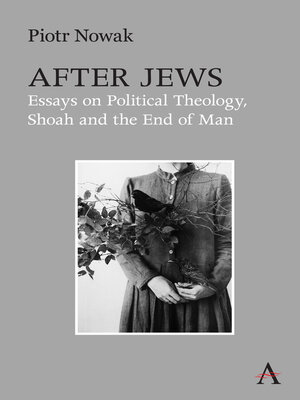
Sign up to save your library
With an OverDrive account, you can save your favorite libraries for at-a-glance information about availability. Find out more about OverDrive accounts.
Find this title in Libby, the library reading app by OverDrive.



Search for a digital library with this title
Title found at these libraries:
| Library Name | Distance |
|---|---|
| Loading... |
The basic idea of this book is an attempt to describe and critically interpret the condition of man living in the shadow of the Shoah, in the world "after Jews". The author achieves this by referring to the language of political theology, renewing the meaning of such theological concepts as eternity, salvation, the idea of the chosen people, apocalypse, radical hope, and others. He seeks an answer to the question of the conditions for the possibility of the Shoah, all this in order to better understand today's growing aggression against people of strong faith, strong traditional beliefs. Is the disturbing thought of the recurrence of the Shoah, the repetition of the worst scenario that has already happened once in the modern world, an overstated thought, an exaggerated suspicion, a neurosis? The author asks several twentieth-century writers and philosophers such as René Girard, D.H. Lawrence, Jacob Taubes, Joseph Roth, Primo Levi, Jean Améry, W.G. Sebald, K.K. Baczyński, Czesław Miłosz, Krzysztof Michalski, Jonathan Lear, Hannah Arendt, Vasily Rozanov, Giorgio Agamben, and Martin Heidegger to answer these disturbing questions. The exceptions are William Shakespeare and St. Paul, who, however, can also be considered contemporary because of their timeless presence.







